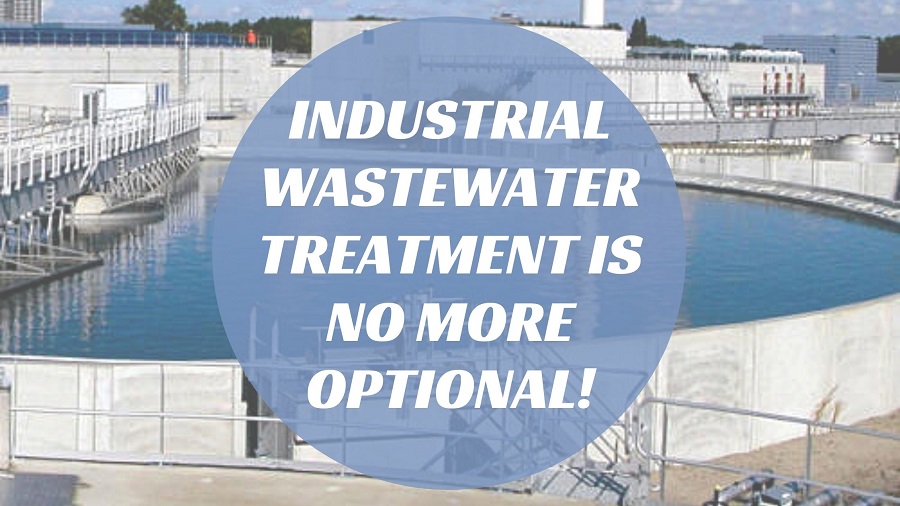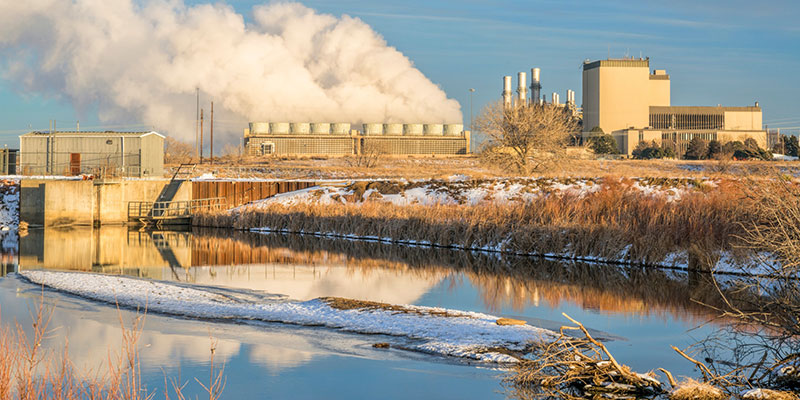Industrial Waste Water Treatment-- Shield the Setting with Specialist Water Treatment Providers
Innovations and Advancements in Industrial Waste Water Therapy Technologies
The landscape of industrial wastewater therapy is going through a transformative change, driven by advancements that boost both performance and sustainability. Arising technologies, such as membrane bioreactors and microbial gas cells, are redefining pollutant elimination processes while adding to energy generation. Additionally, source recuperation approaches are gaining grip, aligning with circular economic situation principles. As regulative criteria evolve, the combination of AI and equipment understanding into wastewater administration systems assures to ensure and improve procedures conformity. Nonetheless, the full effects of these advancements raise critical inquiries about their scalability and long-term influence on market techniques.
Summary of Drainage Treatment Technologies
Wastewater treatment technologies encompass an array of approaches created to eliminate contaminants from commercial effluents prior to their release right into the atmosphere. These technologies are crucial for maintaining ecological equilibrium and making sure compliance with environmental policies. The main categories of wastewater treatment include physical, chemical, and biological techniques, each serving distinct purposes based on the nature of the impurities present.

Organic therapy methods utilize bacteria to weaken raw material, making them particularly efficient for organic-rich effluents. Methods like turned on sludge and biofilm reactors harness the natural deterioration abilities of germs, bring about substantial reductions in biochemical oxygen demand (BOD)
Advanced Filtration Techniques
Advanced filtration strategies stand for a critical evolution in the realm of industrial wastewater treatment, enhancing the efficiency of contaminant elimination procedures. Industrial Waste Water Treatment. These approaches include an array of modern technologies, consisting of microfiltration, ultrafiltration, nanofiltration, and turn around osmosis, which supply consecutive barriers for different particle sizes and chemical frameworks
Microfiltration and ultrafiltration make use of membrane layer systems to get rid of put on hold solids, germs, and larger organic molecules, boosting the top quality of effluent previous to additional treatment. Nanofiltration bridges the void in between ultrafiltration and reverse osmosis, effectively removing natural compounds and divalent ions, thus reducing the lots on downstream processes.
Reverse osmosis provides the highest degree of filtration by permitting just water and small particles to pass via its semi-permeable membranes, making it perfect for reclaiming high-grade water from commercial effluents. Recent improvements in membrane modern technology, including the development of even more resilient and fouling-resistant products, have dramatically enhanced operational performance and minimized costs.
Including these advanced purification techniques not just enhances the total treatment procedure but additionally adds to sustainability initiatives by making it possible for water reuse and resource recuperation in industrial setups. (Industrial Waste Water Treatment)
Biological Treatment Technologies

Furthermore, the advancement of crafted biological systems, such as membrane bioreactors (MBRs), incorporates biological treatment with innovative membrane purification. This integration enables for greater effluent quality and minimized impact, making it suitable for space-constrained industrial centers. Technologies in genetically engineered microbes have additionally emerged, boosting the biodegradation of particular impurities, such as pharmaceuticals and hefty metals, that are commonly use this link challenging to get rid of.
Additionally, the execution of bioaugmentation techniques, where beneficial microorganisms are presented to improve the existing organic treatment processes, has actually shown appealing outcomes in improving therapy efficiency. These developments jointly represent a trend towards even more sustainable and efficient organic treatment techniques that can adjust to the evolving complexities of commercial wastewater streams. As sectors remain to prioritize ecological conformity, these organic developments will play a critical role in wastewater administration.

Source Recovery Approaches
In industrial setups, the combination of source healing methods has actually become significantly important for boosting sustainability and minimizing waste. These approaches concentrate on extracting useful materials and power from wastewater streams, thereby changing possible contaminants right into reusable sources.
One prominent technique is nutrient recuperation, where nitrogen and phosphorus, typically existing in excess in wastewater, are caught and converted into plant foods. This not just decreases ecological impacts however likewise offers a circular economic climate remedy for farming applications. In addition, modern technologies such as anaerobic food digestion permit for the conversion of natural waste right into biogas, a sustainable energy resource that can offset fossil fuel use in commercial operations.
In addition, advanced filtration and membrane modern technologies facilitate the recovery of industrial spin-offs such as steels and salts. These recovered products can be reintegrated into production procedures, lowering the need for virgin resources.
Future Trends in Waste Water Administration
As markets significantly focus on sustainability, the future of wastewater monitoring is established to undertake significant changes. Technological improvements, such as expert system and artificial intelligence, will enable more efficient monitoring and management of wastewater systems. These technologies can forecast upkeep demands, maximize therapy procedures, and enhance decision-making, eventually decreasing operational costs and environmental influence.
In addition, the assimilation of round economic climate principles will play More Info an important role in wastewater management. Industries are anticipated to change in the direction of systems that not only deal with wastewater yet also recoup beneficial sources, such as nutrients, water, and energy. This transition will certainly lessen waste and promote the reuse of materials, straightening with worldwide sustainability objectives.
Arising therapy strategies, such as membrane layer bioreactors and progressed oxidation procedures, will additionally boost Continued the performance of wastewater treatment, permitting better effluents suitable for reuse. In addition, regulatory structures are likely to progress, emphasizing stricter requirements for wastewater discharge and motivating markets to adopt ingenious therapy options.
Conclusion
In verdict, the advancement of industrial wastewater treatment innovations shows a substantial change towards improved effectiveness and sustainability (Industrial Waste Water Treatment). Technologies in innovative purification techniques, biological treatments, and resource healing techniques highlight the sector's dedication to ecological stewardship.
The landscape of commercial wastewater therapy is undertaking a transformative change, driven by technologies that boost both efficiency and sustainability.Wastewater therapy innovations incorporate an array of approaches made to get rid of impurities from commercial effluents prior to their release into the atmosphere.Utilizing the power of biological processes has led to substantial technologies in the therapy of commercial wastewater.In addition, the application of bioaugmentation methods, where helpful microorganisms are introduced to enhance the existing biological therapy procedures, has shown encouraging outcomes in enhancing treatment efficiency. These innovations jointly indicate a pattern towards even more efficient and lasting organic treatment methodologies that can adjust to the progressing complexities of commercial wastewater streams.